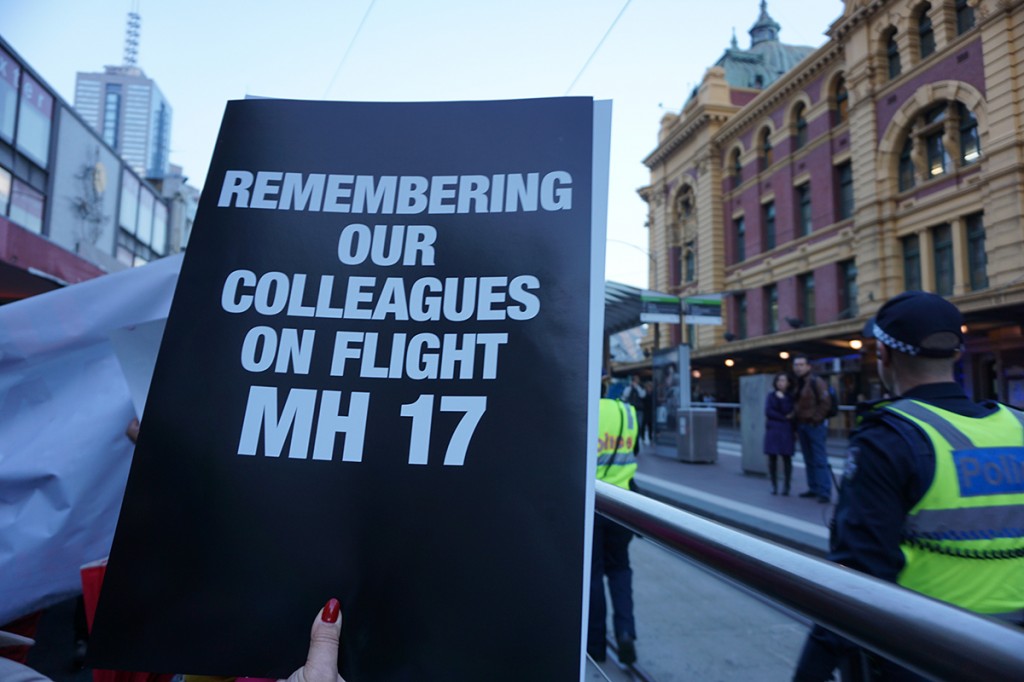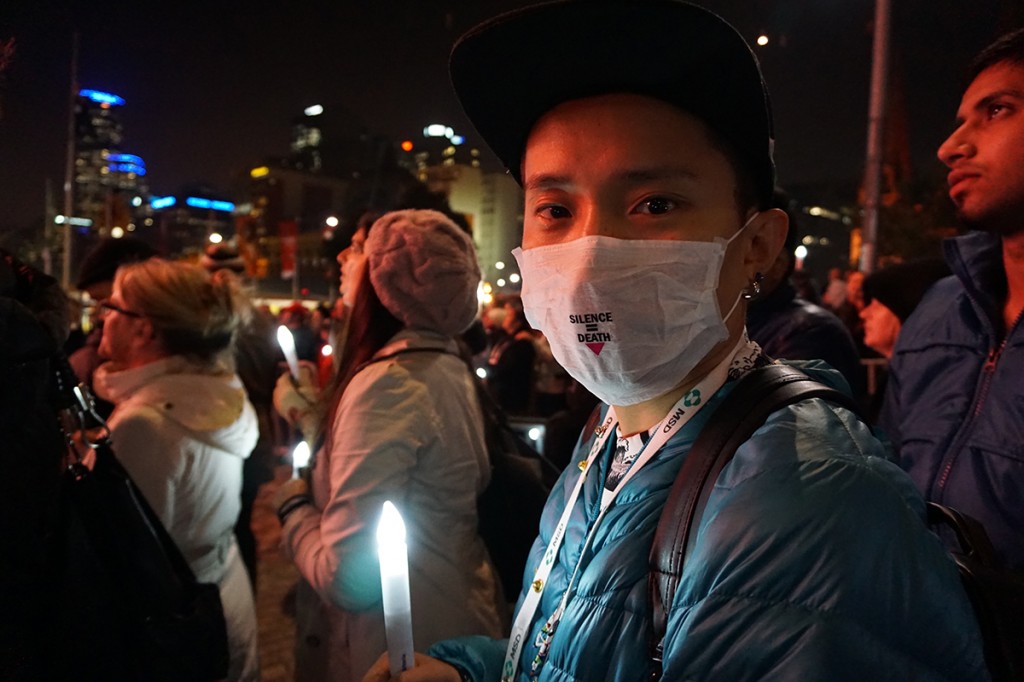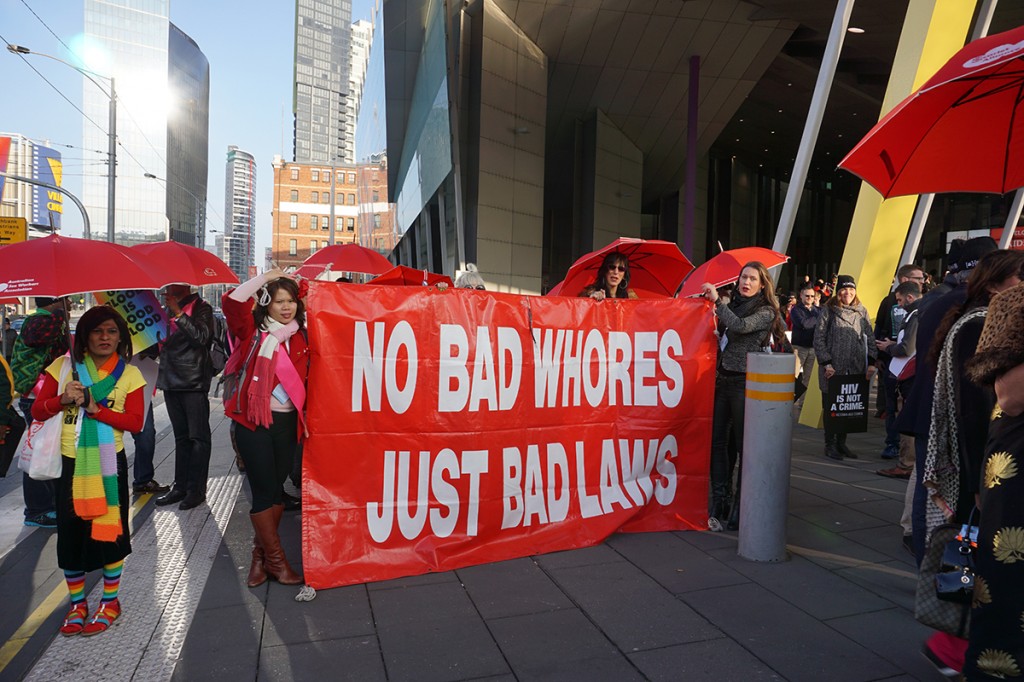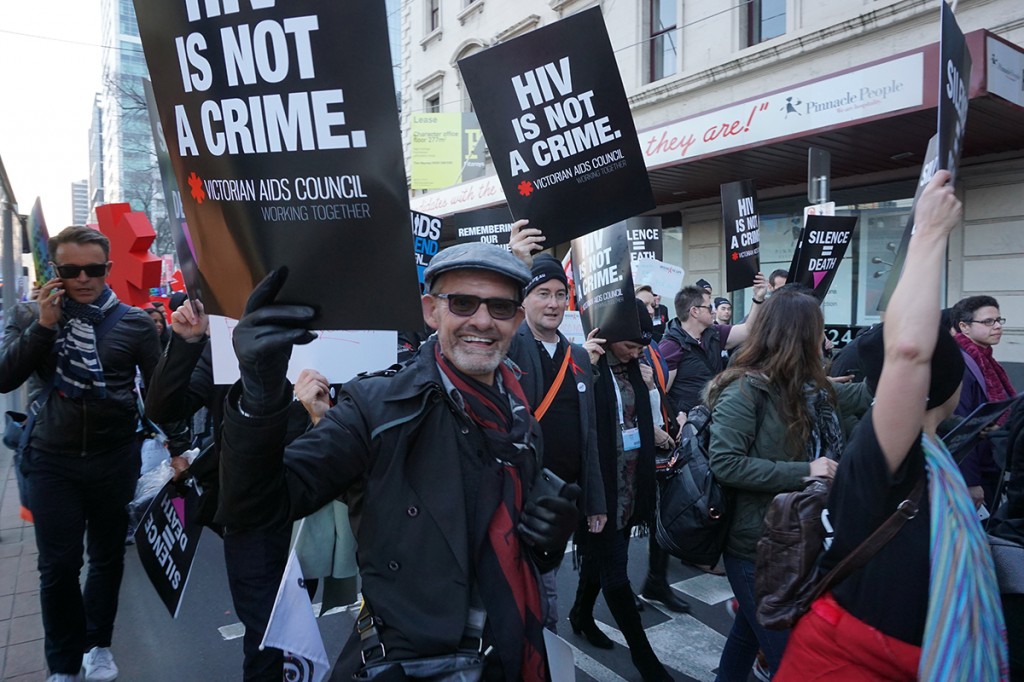The 20th International AIDS Conference, “AIDS 2014”, was held in Melbourne from July 20th to 25th.
The theme of the Melbourne Declaration, which was drafted by the organizers of the AIDS 2014 conference, was “Nobody left behind.” The Declaration affirms that non-discrimination is fundamental to HIV response, and asks governments around the world to guarantee the equal rights of people at risk for HIV.
With the support of Asia Catalyst, I attended the conference alongside Ziyang Guo from Beijing Zuoyou Information Center and Tingting Shen, the Advocacy and Research Director from Asia Catalyst. As the organization I represent, SCMC, focuses on health rights issues for sex workers and LGBT people, I attended the sex worker and LGBT related sessions at AIDS 2014.
Attending this conference has been very meaningful and insightful for me in my intervention work among sex workers and the LGBT community in China. Here are a few of my biggest take-aways:
Current Landscape:
1. The MH17 Disaster

The International AIDS Conference is an influential meeting place for people who work in this field, but the general public is not always familiar with it. AIDS 2014, however, attracted significant attention due to the tragic events surrounding MH17, the Malaysian airliner that was lost over Ukraine. While the world’s news paid attention to the incident, they also began to pay attention to AIDS 2014, because the conference was affected by the many colleagues who we all lost. Those lost included friends and colleagues from international foundations, the World Health Organization, and the International AIDS Committee. In every AIDS 2014 meeting, including the opening, closing, and some smaller meetings, we had moments of silence for those lost.
2. The Response to the World Wide AIDS Epidemic has been Delayed
The newest UN report shows that “Now we have the hope to end AIDS, more than ever; but if we just do what we are doing right/but if we don’t increase our effort, we cannot end AIDS.” On the other hand, some related reports show that to end the AIDS epidemic before 2030 means the spread of the HIV virus must be under control or restrained. Earlier in June 2011, at the UN General Assembly Special Session meeting in New York, Ban Ki-moon said “Since 2011, new HIV cases have decreased 20%”. He said our goal is to end AIDS before 2010. I see that the timeline has been pushed back for ten years, which indicates the severe challenges of worldwide prevention and a cure for HIV.
“Since 2011, new HIV cases have decreased 20%.”
3. Lack of Voice from Chinese Grassroots

The conference was held in Melbourne, an expensive destination. For most grassroots or community-based groups, there are a few ways to attend:
First, is by procuring a scholarship from the conference itself. However, few grassroots NGOs received a scholarship. I believe the major reason is that China is not an English speaking country, and it was relatively difficult for grassroots groups to submit application forms in English, as was required.
Secondly, grassroots groups may receive support from foundations. In the past, many foundations supported Chinese grassroots groups. However, shifting ideas about China’s wealth have caused many to believe that Chinese grassroots can support themselves financially. This is untrue. Most organizations which receive government support are health departments, scholarships, and government organs. The opportunities for Chinese grassroots are essentially zero.
Compounding these problems, this year the Chinese grassroots activist, Ms. Haiyan Ye, was prevented from attending the conference due to restrictions of her personal freedom. With the help of the China Sex Worker Network, Asia Catalyst and Network of Sex Workers in Australia, Haiyan had planned to participate in AIDS 2014. Unfortunately, the Chinese government did not allow this, and instead seized her passport.
4. Female Sex Workers, Women, and Transgender People are Marginalized:

“Politics are anywhere where there are people.” I experienced this reality at AIDS 2014 time and time again.
For example, during some meetings, transgender representatives said that they feel they should be independent from the LGBT group. Ultimately, Transgender (TG) does not have an independent status among AIDS prevention programs, which violates their basic rights. Instead, in AIDS prevention programs from UNAIDS or the WHO, TG is regarded as a part of Men who have Sex with Men (MSM) AIDS prevention or gay prevention programs.
In a similar fashion, females who live with HIV/AIDS from England brought up that, while the UN paid attention to gender issues by establishing the UNWOMEN, there is not much female related support in the budget of programs for AIDS prevention and treatment.
It was clear that these issues contributed to a structural marginalization of groups such as transgender people and women.
Changing Landscapes:
1. T&T, TasP, PrEP

A lot of discussion during the conference focused on using treatment as prevention.
There are currently two major ways to prevent HIV by taking medicine.
The first is the use of anti-virus medicine before intercourse, so that medicine levels increase to a certain amount to kill the HIV virus; the second is a daily medicine level that maintains the medicine level in a safe amount.
In addition to these methods, condom use is highly promoted. Although these methods are promoted by international NGOS such as The Global Forum on MSM and HIV, and bodies like the WHO, some people believe that they are little more than fraudulent. In that light, debate remains heavy on whether or not these “breakthrough” prevention methods are beneficial or malevolent.
2. Discussion of new cooperation between sex workers and the police:
A training supported by the Open Society Foundation (OSF) in Viet Nam, Thailand, Kenya, and Ghana, invited local sex workers, related NGO workers, and police officers to discuss how sex workers can better cooperate with the police. After the launch of this program, relationships between sex workers and police greatly changed.
Whereas before the program sex workers were afraid of the police, after the program sex workers feel comfortable contacting the police when they are in trouble or need help. Leaders of local sex worker groups spend time building up good relationships with the police, and if new officers come, the police invites them to attend OSF trainings.
Remarkably, due to the enhanced sex worker-police relationship, clients of sex workers stopped treating sex workers with violence. At the same time, condom use among sex workers has increased.
While sex work is still illegal in these countries, the trainings and their outcomes will help decrease the crime threat, and spotlighted the importance of condom use to the police and the dangers of using condoms as evidence of prostitution and grounds for arrest.
3. Laws and the Human Rights of Sex Workers:
AIDS 2014 provided me the opportunity to understand major legal frameworks for sex workers around the world and their implications. Legal frameworks such as those in Australia (state-led), New Zealand (legalization of sex work), and Sweden (sex work is legal but the purchasing of sexual service is criminalized) contributed to a wider understanding of what legal advocacy goals should be organized around in China.
Most of the countries in Southeast Asia, including China, criminalize sex work. However, there is no data that shows that the criminalization of sex work is helpful for HIV responses. On the contrary, there is a plethora of data, such as the reports released by Lancet during AIDS 2014, that decriminalization will be the best measure to prevent the spread of HIV among the key affected populations.
Attending AIDS 2014 was a very rewarding experience for me. I had the chance to learn the most recent development in this field, and interacted with activists from all over the globe. The information I learnt and connections I built in Melbourne will help to strengthen my work in China.
Zheng Huang (Tony) is the Founder and Secretary General of the Shanghai CSW (commercial sex worker) & MSM (men who have sex with men) Center (SCMC), which works with the sex worker and the LGBT communities. He has published several articles focusing on issues related to HIV, the LGBT community, and sex worker rights. He lives in Shanghai, China.




